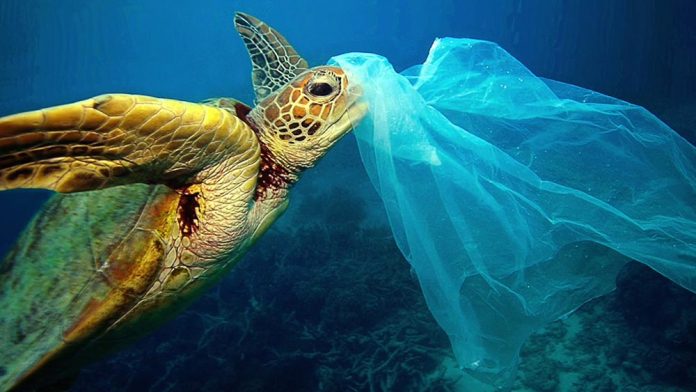It’s not so long ago that supermarket checkout operators would routinely put as few as one or two items into each lightweight plastic shopping bag.
Often these items could have gone into a customer’s own carry bag or been easily carried unbagged. The bag was usually discarded, wasting the resources that went into making it and creating a potential plastic pollution problem if the bag escaped into the environment.
Those days are largely gone thanks to the voluntary removal of billions of lightweight plastic bags from the big supermarkets in July 2018. According to the National Retail Association (NRA), bag consumption dropped by over 80 per cent to December 2018, equating to 1.5 billion fewer bags used. The supermarkets’ decision also coincided with state-wide bans coming into effect in Queensland and Victoria.
Has this change led to a reduction of plastic pollution and plastic waste?
“This is the critical question,” says Lisa Wriley, Community Campaigner with the Boomerang Alliance, which comprises 49 national, state and local groups advocating to reduce waste, recover resources and ultimately achieve a zero-waste society.
“It is too early to tell and litter data is problematic. While the voluntary bag ‘ban’ is only on the 80 per cent of lightweight bags previously handed out at supermarkets and not on the 20 per cent handed out at all the smaller shops including takeaway food shops, there are still plenty of opportunities for those plastic bags to escape into the environment.
“Are the thicker bags contributing to plastic pollution? No doubt they have been seen on roadsides since being introduced but they are less likely to blow and travel down waterways than their lighter predecessors. Sadly it would seem that they are not always being reused. Plenty have been spotted in public place bins (apparently after only one use) so there is certainly considerable waste of these new bags and the finite resources used to make them.”
Retailers and waste campaigning groups alike are calling on the NSW government to legislate the phasing out of all single-use plastic shopping bags across the board. This will bring NSW in line with all other Australian states and territories. South Australia leads the way in the effort to reduce plastic pollution. The South Australian government was the first to ban the bag (in 2009) and plans to release draft legislation as early as the end of the year to phase out single-use plastics in general (including straws, cutlery, polystyrene food containers and other plastics).
Are we getting better at remembering to bring enough bags and reuse them?
“It is my hope that the cumulative impact of paying 15 cents per bag will help us remember,” says Lisa. “If it doesn’t, perhaps we need to legislate to increase the price of plastic bags and require retailers to donate all profit on bag sales to environmental good causes. Or we can get rid of the thicker plastic bags altogether and only have canvas, calico, parachute silk bags which rightly cost more, are washable and durable, so can be re-used over and over.”





